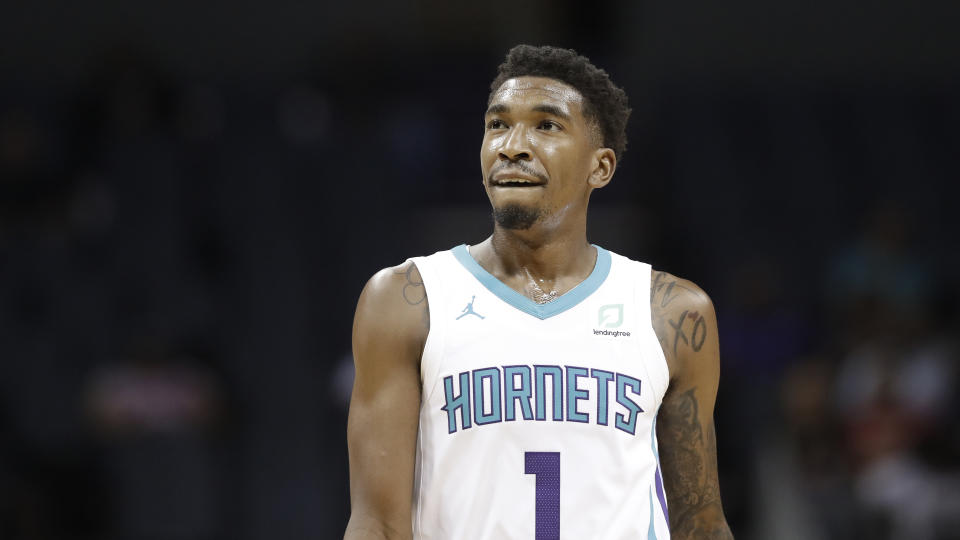Hornets season preview: Charlotte needs young players to develop quickly

The Hornets have been stuck in the dreaded middle (good enough to compete, but not a title threat) for the past decade. Michael Jordan brought in his North Carolina pal and former Lakers GM Mitch Kupchak to take over the front office at the end of last season. With face of the franchise Kemba Walker entering the final season of his contract, the Hornets will need to either improve his supporting cast or consider moving on.
After consecutive 36-46 seasons, the Hornets fired Steve Clifford and replaced him with former Spurs assistant James Borrego. The Hornets finished No. 10 in points per game last season, but Borrego wants them to play even faster this season:
“In practice, we’ve been playing with 12- and 14-second shot clocks just to speed it up,” Malik Monk said, per The Charlotte Observer.
A more uptempo offense will be pleasing for fans, but it will only accomplish so much for a flawed roster. Kupchak is burdened by several bad contracts that were signed during the 2016 and 2017 salary cap spikes. Nicolas Batum ($24 million), Bismack Biyombo ($17 million), Marvin Williams ($14 million), Cody Zeller ($13.5 million) and Michael Kidd-Gilchrist ($13 million) will each earn more money this season than Walker ($12 million). Of the five players earning more than Walker, only Batum and Williams have three-point range, and neither is an elite shooter. On top of that, the second-leading scorer from last season is Jeremy Lamb at 12.9 points. The Hornets have one of the messiest cap situations in the league, complicating any path to improvement.
If the Hornets are going to play faster, they need to get more three-point shooting on the floor. One possibility is 2017 first-round pick Malik Monk, who struggled mightily in his rookie season. He averaged just 6.7 points on 36 percent shooting from the field and 34.2 percent from beyond the arc. Drafted two spots before Donovan Mitchell, Charlotte needs Monk to live up to his draft status in his second season. He showed flashes of his potential during the preseason:
Malik Monk with the clean step-back footwork! #NBAPreseason
: NBA League Pass pic.twitter.com/dfe9cZ1ceM
— NBA (@NBA) October 8, 2018
Yet even if Monk rediscovers his shooting stroke, his diminutive size at 6’3” and 200 pounds makes him tough to play alongside Walker. It’s a crucial season for Monk. NBA teams don’t have the luxury of waiting for lottery picks to develop. The man who drafted Monk over Mitchell has already been fired. If Monk doesn’t become a reliable member of the rotation, his future in Charlotte could become murky.
X-Factor
On a roster full of average athletes, No. 12 pick Miles Bridges is an elite athlete who can inject some energy into the team. He had a solid preseason, averaging 12.4 points on 55.6 percent shooting and 47.4 percent from beyond the arc. With his combination of size and athleticism, Bridges should see time at both forward spots.
Bridges will be a key piece moving forward for the Hornets. As far as this season is concerned, he will have the same growing pains as other rookies adjusting to the NBA style of play.
Malik Monk tosses it up to Miles Bridges for the alley-oop slam pic.twitter.com/YHQhIW0mBe
— Def Pen Hoops (@DefPenHoops) October 8, 2018
Outlook
The Hornets finished in 10th place last season, 7 games behind the No. 8 seed. With the same starting five returning, they don’t appear poised to overtake any of the teams that finished ahead of them.
The question that will loom over the Hornets all season will be what should they do with Walker? At 28, he’s made two straight All-Star Games and is in the prime of his career. The Hornets are hosting All-Star weekend this year and likely want to have him serve as ambassador.
The probable outcome is that they hold on to Walker through the trade deadline and then re-sign him in the offseason. That would please fans and help keep attendance up as he finishes his career with the team that drafted him. There’s certainly value in keeping around one of the greatest players in franchise history.
It would also lock the Hornets into staying on the treadmill of mediocrity. Walker will be eligible for a 5-year, $189 million contract. Even if he doesn’t sign for the full max, they’d still be making a 9-figure commitment to a 6’1” point guard approaching 30 years old.
Realistically, the best option for the long-term health of the franchise would be to explore deals for him in search of draft picks and young players. After his name was mentioned in trade talks last season, Walker nobly stated his commitment to the franchise. Dealing him to a team where he could compete in the playoffs would be a sign of goodwill by the franchise that failed to build a sustainable playoff team around him.


